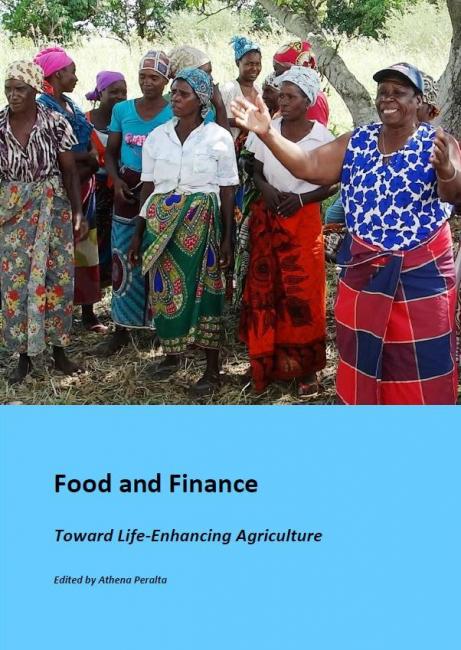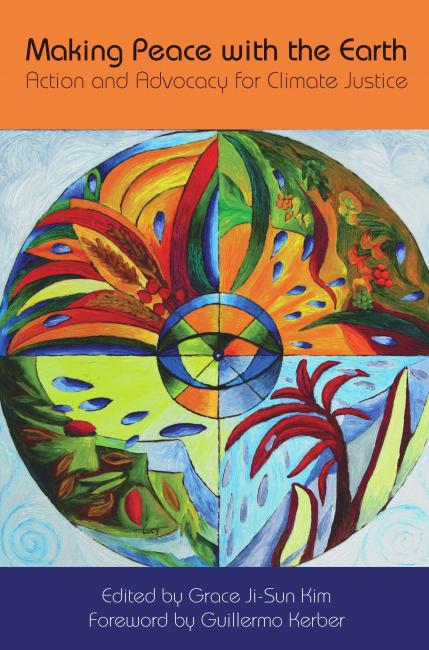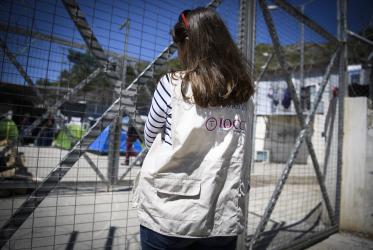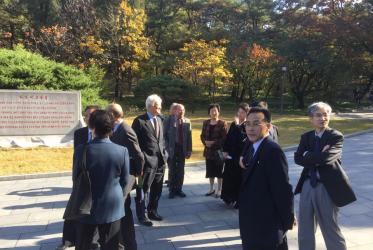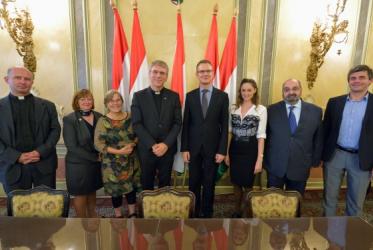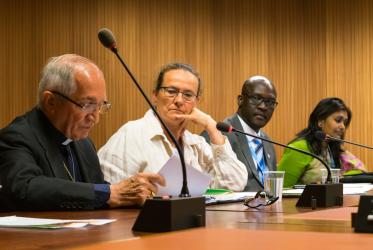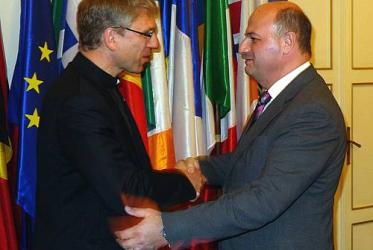Displaying 101 - 120 of 125
WCC climate change group plans advocacy strategy
10 October 2016
“European solidarity must be strengthened”
29 October 2015
Local and global work saves lives
22 October 2015
Tveit: We need an international solution to the refugee crisis
29 September 2015
Letters to the future: Eco-justice visions in South Africa
13 December 2012
Situation in Greece more than an economic crisis
20 November 2012
40 days – no emissions? Swedish urbanite lives the concept
14 August 2012
Christian leaders “fast for fair food”
02 March 2012
